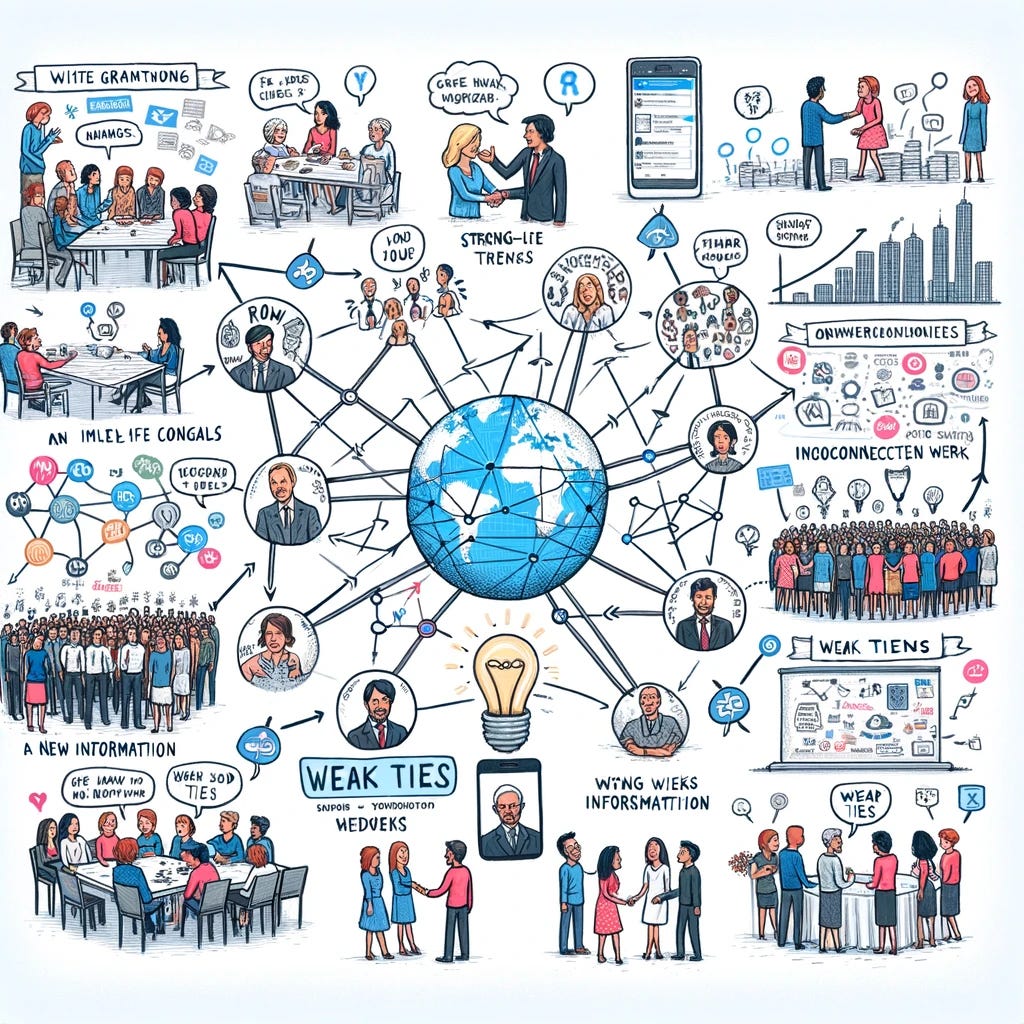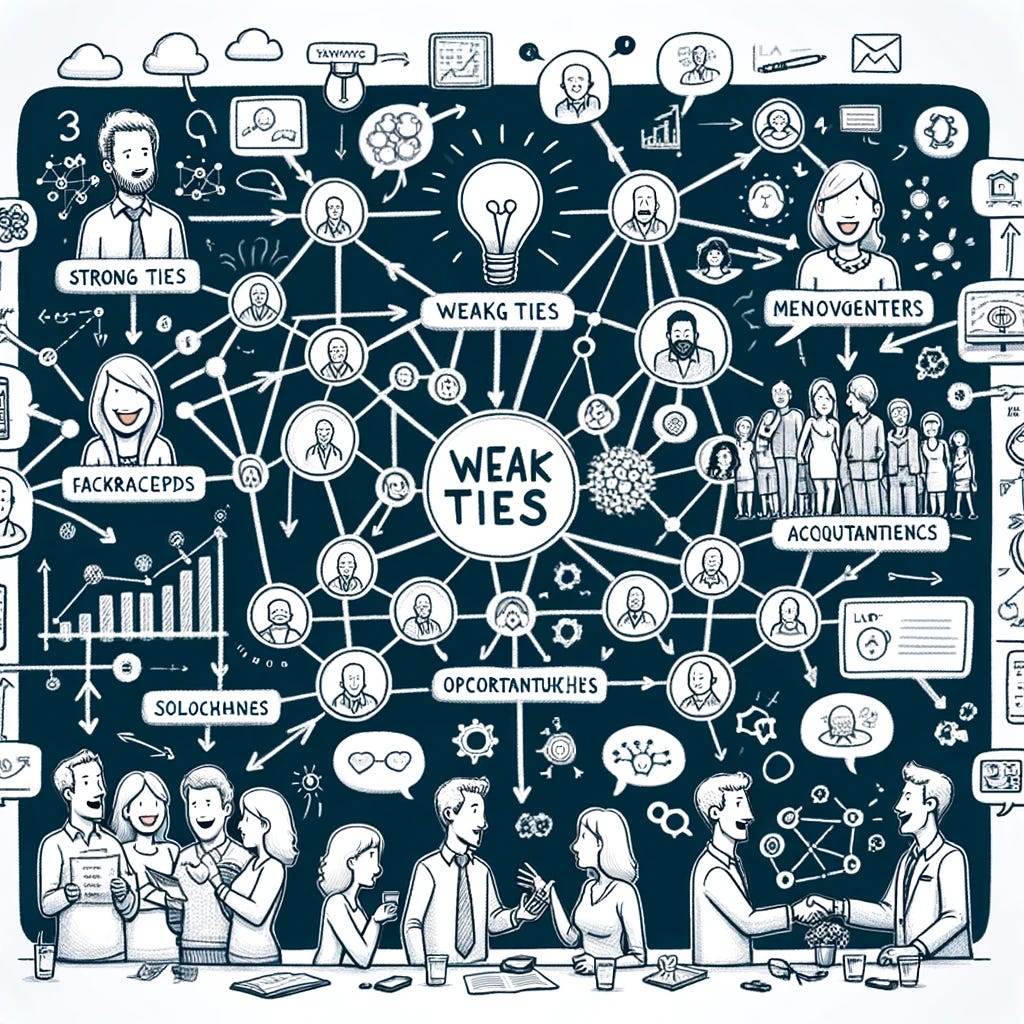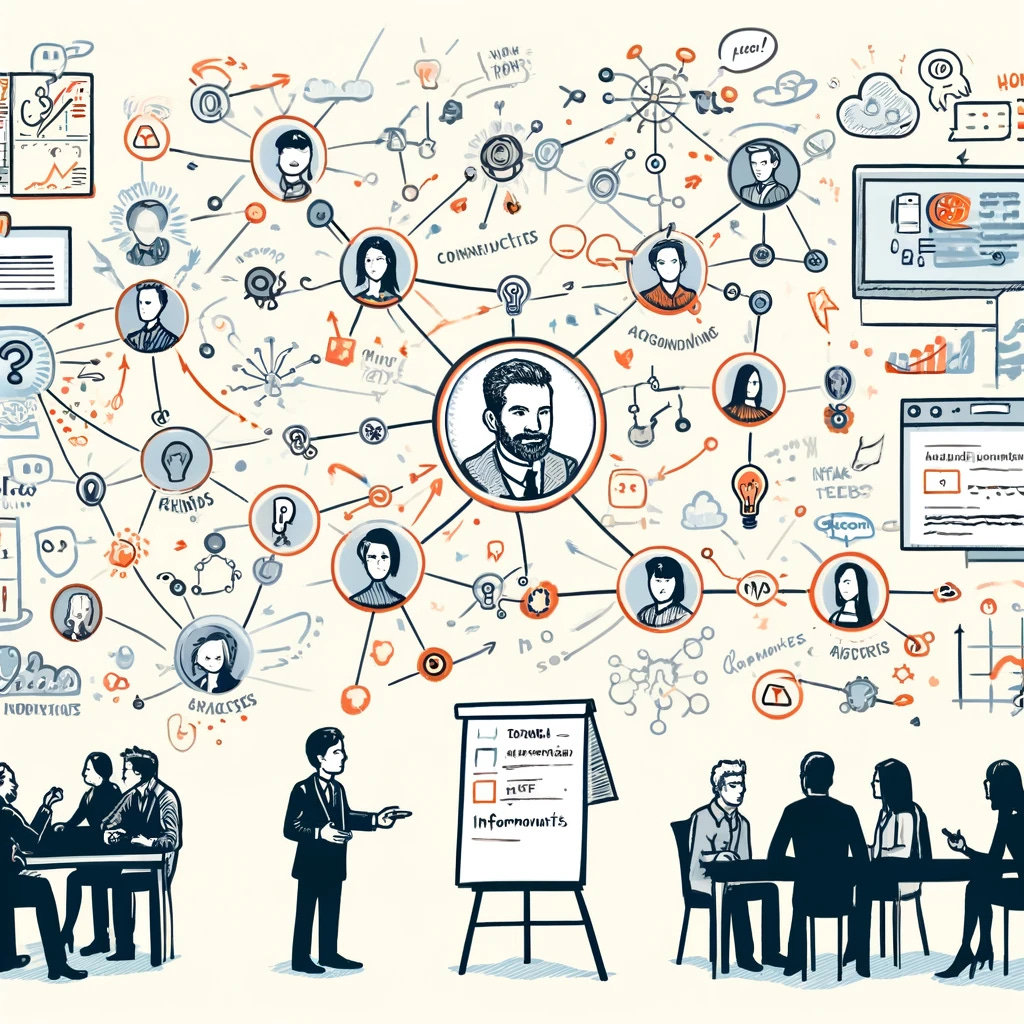The Strength of Weak Ties
Imagine you’re at a party. You spend most of your time chatting with your closest friends, the people you see almost every day. But then, you decide to strike up a conversation with someone you barely know, a friend of a friend. This new acquaintance mentions a job opening that perfectly matches your skills. You apply, and a few weeks later, you land the job of your dreams. This is the power of weak ties.
Mark Granovetter, a sociologist, introduced this fascinating idea in his famous work, "The Strength of Weak Ties," published in 1973. Granovetter’s theory revolutionized how we think about social networks and the connections we make with others.
Understanding Weak Ties
In simple terms, weak ties are those acquaintances or distant friends we don’t interact with regularly. On the other hand, strong ties are our close friends and family members, people we trust and see often. Granovetter argued that while strong ties are essential for emotional support, weak ties are incredibly valuable for gaining new information and opportunities.
Why? Because our close friends tend to know the same people and information as we do. In contrast, acquaintances move in different circles and have access to different information. They bridge gaps between different social groups, bringing fresh perspectives and opportunities that we might otherwise miss.
Real-Life Applications
Granovetter’s theory has had a significant impact on various fields:
1. Job Hunting: As in the party example, many people find jobs through weak ties rather than through close friends or family. A casual conversation with a distant acquaintance can lead to unexpected job opportunities.
2. Innovation and Ideas: In the business world, weak ties facilitate the spread of new ideas and innovations. Companies often collaborate with external partners or consultants who bring in fresh insights that internal teams might not think of.
3. Social Movements: Weak ties play a crucial role in social and political movements. They help spread messages and mobilize support beyond the immediate circles of activists, reaching a broader audience.
Popular Culture and References
Granovetter’s work has influenced not just academic fields but also popular culture. Here are a few examples:
1. Books: Malcolm Gladwell’s "The Tipping Point" discusses how little things can make a big difference, echoing Granovetter’s ideas about the power of weak ties in spreading trends and ideas.
2. Movies: Films like "The Social Network" highlight the significance of networking and how connections, even weak ones, can lead to significant opportunities and innovations.
3. Fashion and Trends: In the fashion world, trends often spread through weak ties. Influencers with large but less intimate followings introduce new styles that quickly gain popularity.
4. Economic and Social Events: The rise of social media platforms like LinkedIn and Facebook underscores the importance of weak ties. These platforms thrive on connecting people who know each other only casually, creating vast networks of weak ties that can be leveraged for professional and personal growth.
The Impact of Weak Ties Today
In our interconnected world, weak ties are more important than ever. Social media allows us to maintain a vast network of acquaintances, providing endless opportunities for new information and connections. Whether it's finding a job, discovering new ideas, or joining a social movement, weak ties can open doors that strong ties might not.
Mark Granovetter’s "The Strength of Weak Ties" reminds us that sometimes, the people we know the least can have the most significant impact on our lives. So, next time you’re at a party or scrolling through your social media feed, remember the power of reaching out to those acquaintances. You never know what opportunities might come your way.
Conclusion
The strength of weak ties lies in their ability to bridge different social circles, bringing new information, opportunities, and perspectives. Granovetter’s groundbreaking work continues to influence various fields, highlighting the importance of maintaining a diverse network of connections. Embrace your weak ties—they might just change your life.
If you want to watch video:
Thank you so much for reading this article and helping to spread and popularize SNA.
In keeping with the concept of the channel, I have a request for you:
Please like this text and subscribe to the channel. After you do, I will like an article on your channel and subscribe to your channel.
This way we can test the power and impact of the network together and benefit from it.
Goodbye until we meet again.
To follow:
X: https://x.com/uycetinkaya
YouTube: https://www.youtube.com/@LocusNova
LinkedIn: https://www.linkedin.com/in/uycetinkaya
Facebook: https://www.facebook.com/uycetinkaya




